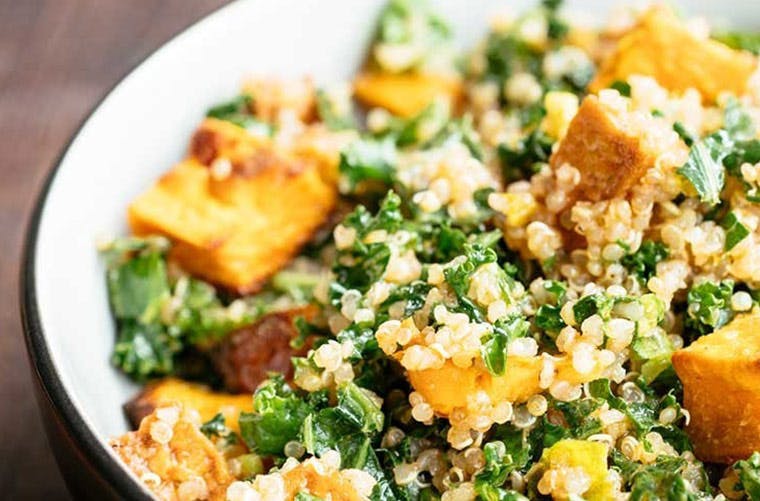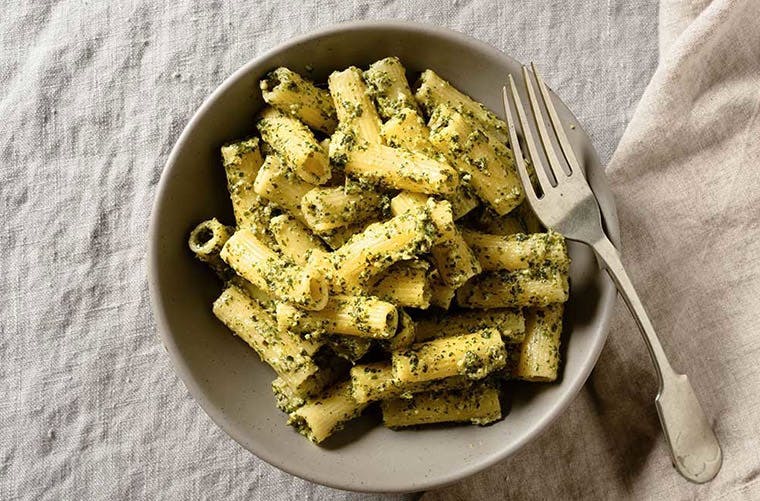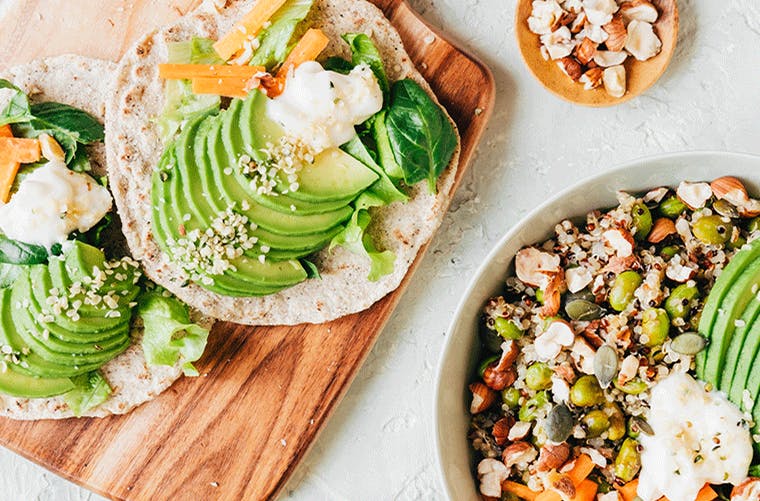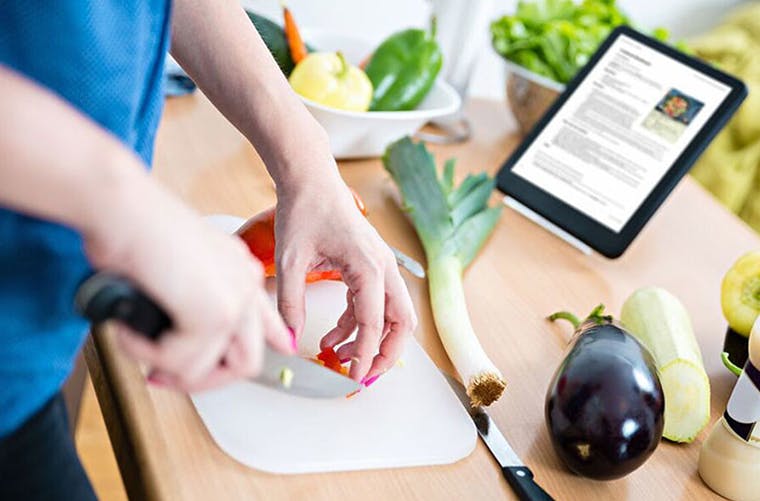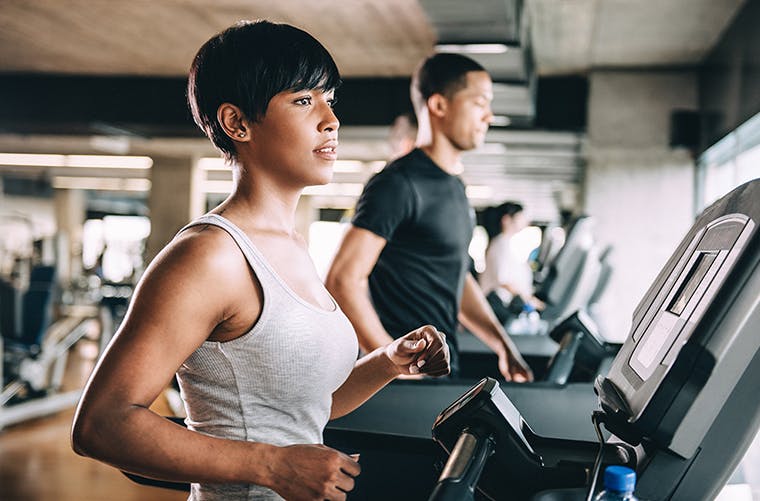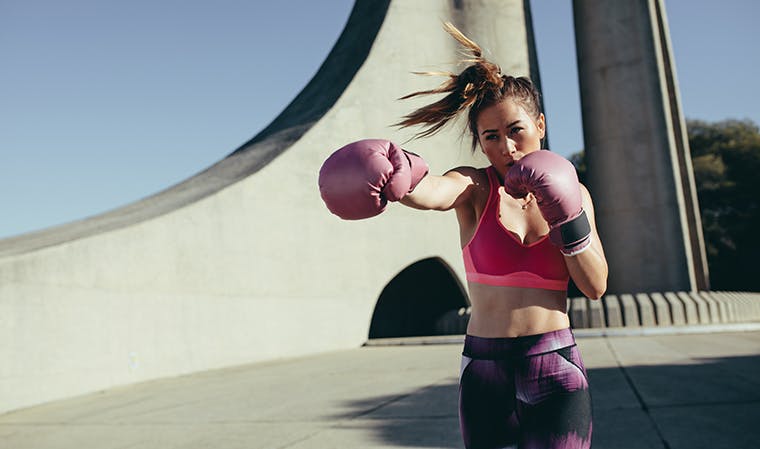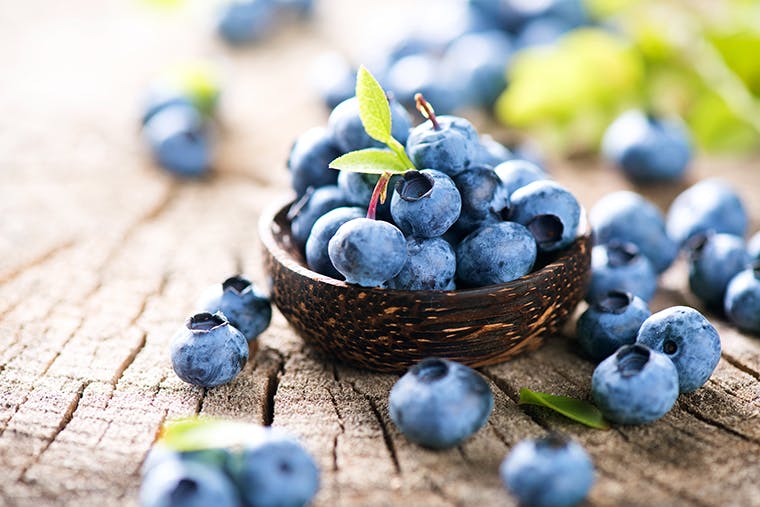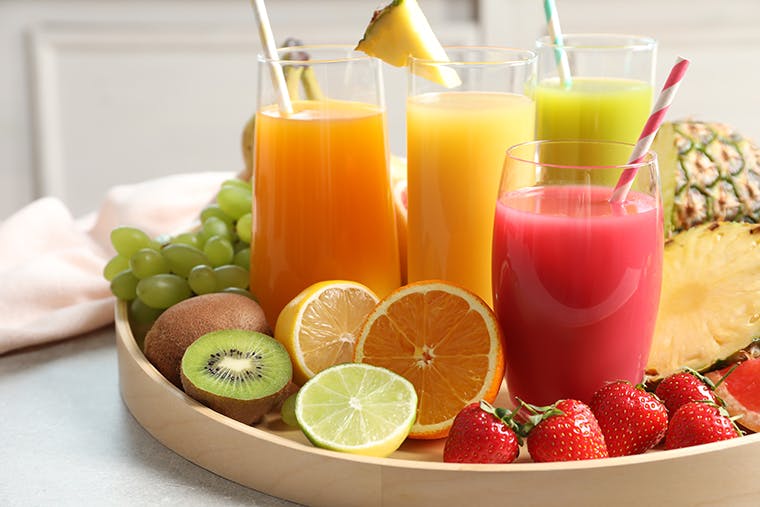What is Moon Milk? And Can It Really Help You Sleep?
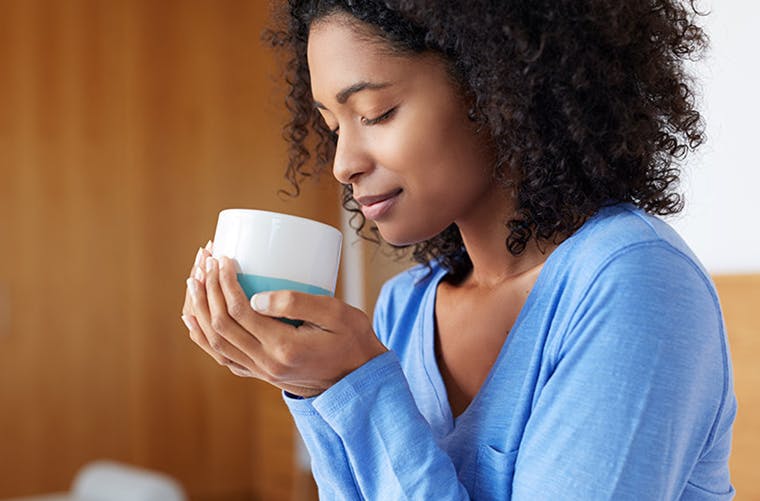
Well, probably not.
Forget whole and skim. These days, it feels like you can't click or swipe through social media without hearing about a new milk. There are so many that it makes even almond milk seem like old news: There's cashew milk, oat milk, and, most recently, moon milk, which has been making the rounds on everywhere from Pinterest to Instagram.
WHAT IS MOON MILK, EXACTLY?
Unlike its other wellness-minded brethren, moon milk isn't just milk or a milk substitute. It's actually a golden-hued concoction consisting of a base of milk of your choice and spices like turmeric, cardamom, cinnamon, nutmeg, and black pepper. The thinking behind its popularity is that this particular combination of ingredients can aid sleep.
Because moon milk is so aesthetically pleasing (perfect for Instagram!) and has a cute name, it was bound to become a wellness superstar. No wonder Pinterest reported that searches for moon milk have risen 155%. But whether it actually has any sleep benefits is less clear. In fact, it probably doesn't offer nearly as much as moon milk fans think.
DOES IT HELP YOU SLEEP BETTER?
"The connection to sleep with these ingredients is based more on anecdotal evidence than actual scientific research," says Keri Gans, RDN, a nutritionist and yoga teacher in New York, NY. "The ritual of warm milk prior to bedtime may actually be more psychological than physical, since for many it brings back soothing memories of their childhood bedtime."
"I’m not a fan of consuming cow milk. That said, cow milk contains tryptophan, a sleep-inducing amino acid," explains Juhi Singh, an integrative medicine specialist and founder of The Juhi Center in New York, NY. "The combination of ingredients in moon milk has a synergistically calming effect on the nervous system, thereby relaxing the body." That could potentially promote sleep.
WHAT CAN MAKE IT EASIER TO FALL ASLEEP?
Part of moon milk's buzziness may be that people are seeking a holistic approach to improving sleep —which is, of course, a valid reason. But there are other, far more reliable habits that can help you hit the hay faster. First, Gans says, avoid caffeine and alcohol before bed, as they can alter your sleep patterns. And spicy foods can rattle your digestive system (and therefore your sleep), so it's best to bring the heat another time.
Moreover, "it really is more about the lifestyle habits than actual food," Gans explains. "Make sure your room is completely dark, bed without clutter, and no light permeating from your phone." She's also a fan of using white noise machines if you live in a noisy area.
As for supplements, Gans says that some research supports the use of melatonin and L-theanine for those who experience insomnia. And Singh recommends taking a warm bath infused with lavender or neroli essential oils.
If you're into warm drinks like moon milk for the taste alone, it probably won't do any harm to drink it. And even if you swear by it for yourself, maybe don’t post your artful photos of moon milk to social media or scroll through #moonmilk tags at night, since using your device will only keep you up. The moral of the story here: No matter which healthy sleep habit you choose, just make sure that you're not sabotaging your own efforts.
© Meredith Corporation. All rights reserved.





